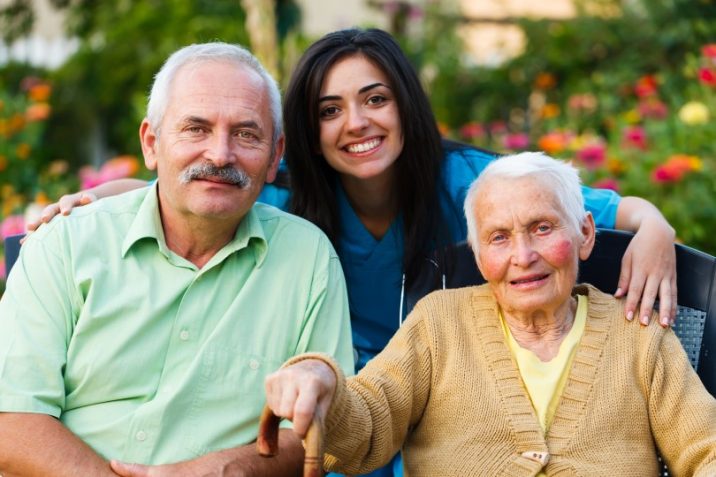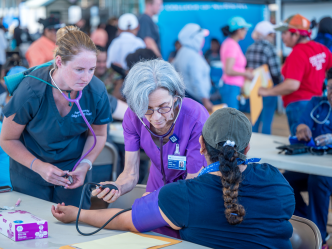Results of a study published in October 2018 by the American Psychological Association found 24 percent of adults say they are “extremely stressed” with more than one-third of adults reporting their stress level increased during the last 12 months. When stressed adults are also taking care of a loved one living with cancer, plus preparing to make the holiday season unforgettable, you could get a recipe for the kind of memories you’ll want to forget. Unless you listen to Dr. Amy Allison’s advice.
“We know caregivers want to keep things consistent for the person they are caring for,” said Allison, director of the Psycho-Social Oncology Program at the Georgia Cancer Center at Augusta University. “When they start dropping the ball on some of the planning, it can create a strong sense of guilt.”
The first step is an honest discussion about what a person is able to do given all of the responsibilities they have outside of being a caregiver. Talk about why it’s the family and friends coming together and not the holiday season itself that is actually what matters.
It can be tough to get all of your gift shopping done between a doctor’s appointment, a chemotherapy session and picking up medications for treatment at home. Instead, look at doing your shopping online. You can order right from your smartphone while spending time with your loved one in a hospital room.
“When those gifts do arrive, I recommend using gift bags instead of taking time to wrap each present,” Allison said. “Often, caregivers are not prepared for the amount of work it’s going to take to care and assist the cancer patient. This means it’s important to save time in ways we may not think of.”
According to Allison, it can be very easy for the caregiver to be so consumed by the patient’s needs, they forget to take care of their own needs.
“Usually conversations we have are focused on patient concerns,” she said. “But, we try to ask them how they’re doing, how they’re coping with what they’ve experienced and seen while caring for the patient.”
For those caring for patients with a terminal diagnosis, they may go all out to make their loved one’s final holiday season as special as possible. They feel like it is really worthwhile to go all out with planning, decorations, food, gift giving, etc. However, it can be too much work for one person.
“We work to modify their expectations to make the holidays meaningful, instead of stressful,” Allison said. “For these caregivers, they don’t want to admit that it’s overwhelming and that they’re struggling. Some don’t feel like they have the right to complain because their loved one is fighting for their life.”
When those feelings of being overwhelmed start to creep in, consider asking someone else to step in as the caregiver for a day or two. Is there another family member or friend who can help out? People love to offer help and support when someone is going through a cancer diagnosis. Let that other person take the patient to an appointment, so you can take time for yourself and do the things you need to. It doesn’t need to be all on your shoulders.
“We know caregivers have a higher rates of anxiety, depression, hopelessness,” Allison said. “In some studies, it can match that of the cancer patient or even exceed it. There’s a huge mental health problem, but it’s usually a silent suffering.”
Another idea to lower stress levels during the holiday season can be to make meals a potluck, instead of the caregiver trying to prepare all of the dishes. Consider creating a meal plan and distributing it as part of the invitation to the holiday celebration. The caregiver may be able to cook the main dish, but family and friends can bring side dishes, desserts and drinks.
“Just because it’s not the same, doesn’t make it less important,” Allison said. “Isn’t it all about being a family and making memories, instead of about the turkey, dressing, sides, etc.?”
 Augusta University
Augusta University




